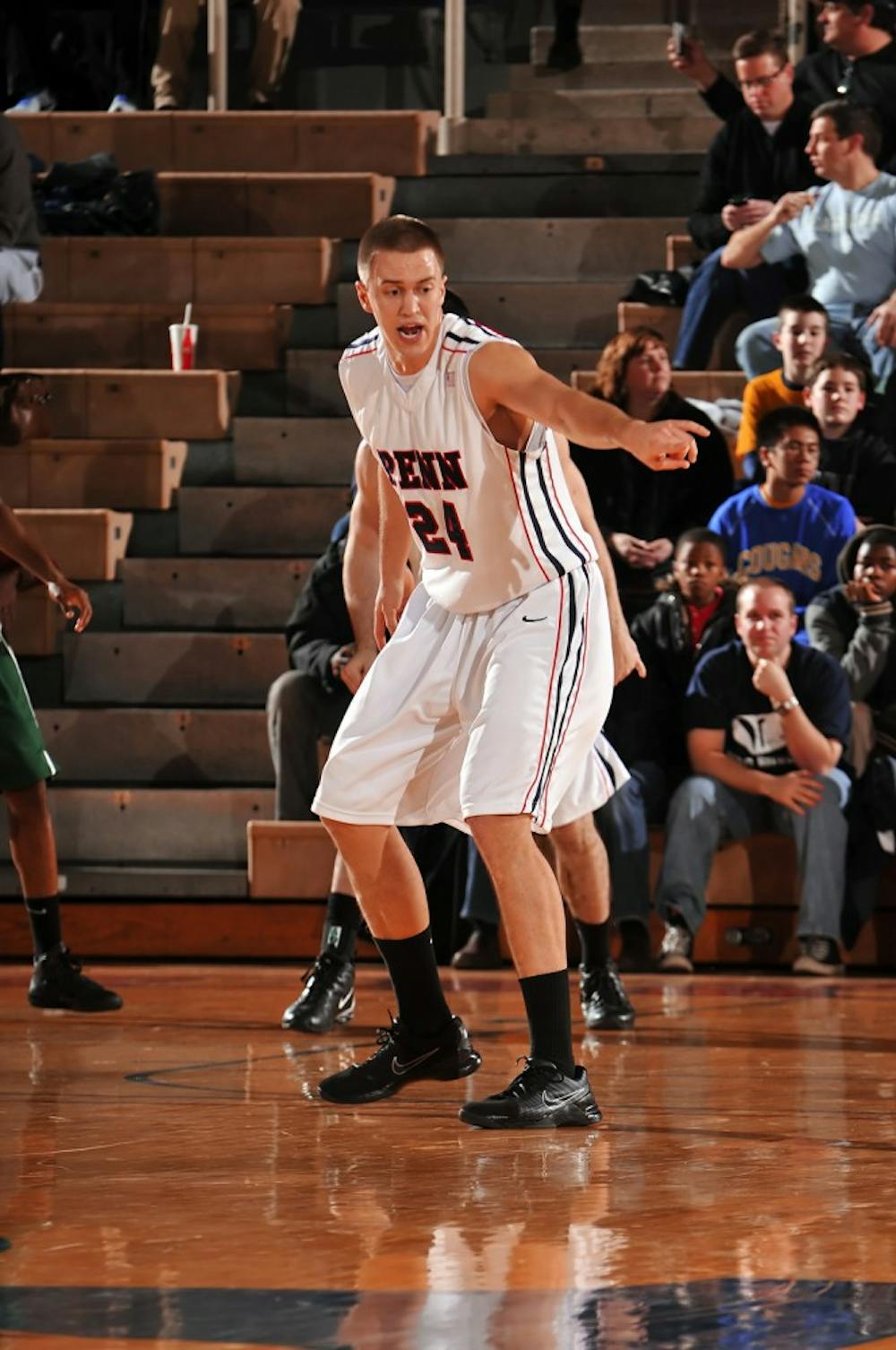
Actions may speak louder than words, but verbal communication also plays a vital role in deciding the outcome of a basketball game.
Players talk to coaches, officials, teammates and — most visibly — their opponents.
Indeed, trash talking plays a significant role at every level and type of sport — often much to the chagrin of the culturally elevated among us.
Professional sports fans can remember the November incident when Charlie Villanueva of the Detroit Pistons claimed that the Boston Celtics’ Kevin Garnett called him a “cancer patient” during a game.
It seems unlikely that anyone would call that a positive contribution to basketball.
Few players on the Penn men’s basketball team know about the presence of trash talking in Ivy League basketball better than senior forward Jack Eggleston.
“Every team’s got its guys that like to run their mouths,” the senior co-captain said.
And this may come as something of a surprise to those who hold the Ivy League — which steers clear of collegiate athletics standards like postseason football and athletic scholarships — to a higher standard.
But, as Eggleston is quick to point out, no one team — much less a whole conference — is immune to attempting childish intimidation methods.
“Outside of the Ivy League, the stereotype is [that we are] kind of stuck-up [jerks],” he said. “There are some players that uphold that stereotype.”
While Eggleston declined to give any names, senior Tyler Bernardini mentioned that rival Princeton senior guard Dan Mavraides is “an active contributor to trash talking within the league.”
Although players are the main perpetrators, fans get in on the act too.
Bernardini recalled a moment of particularly pointed vitriol a couple of years ago.
“I remember one Drexel fan my sophomore year was like, ‘Tyler Bernardini, I f-ing hate you!’ I was like, wow,” he said.
How a beautiful game like basketball could breed such raw contempt, Bernardini can’t decipher.
But when it comes down to it, neither he nor Eggleston really cares too much about understanding foul-mouthed motives.
They just want to win.
“I never really say anything,” Bernardini said. “I even have people say something to me, then I’ll hit a shot right back.”
After all, baskets count towards the score and clever insults do not.
Bernardini went so far as to posit that trash talkers really hurt themselves more than they do the other team.
“If you’re trash talking, you’re more emotionally involved,” Bernardini said. “And then, next thing you know, you start missing some shots, and you’re already emotionally involved, you can’t help getting frustrated.”
So it appears that actions really do speak louder than words.
Indeed, that’s why a very common response to a verbal jab is simply ‘scoreboard.’
But that doesn’t mean Quakers players are too dignified for the occasional taunt.
“Every once in a while,” Eggleston said, “I’ll kind of let them have it.”
The Daily Pennsylvanian is an independent, student-run newspaper. Please consider making a donation to support the coverage that shapes the University. Your generosity ensures a future of strong journalism at Penn.
DonatePlease note All comments are eligible for publication in The Daily Pennsylvanian.







